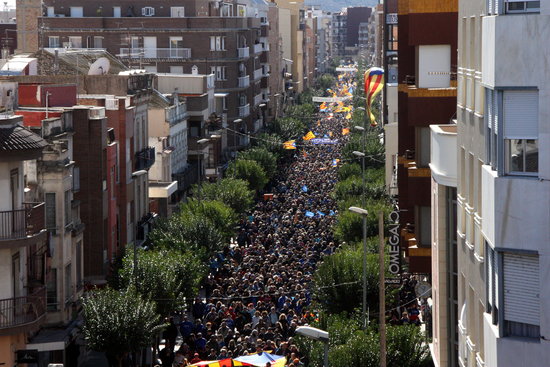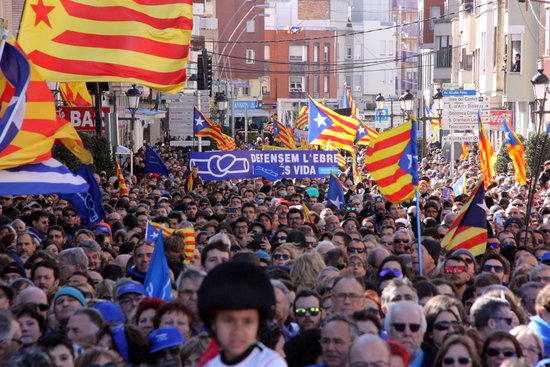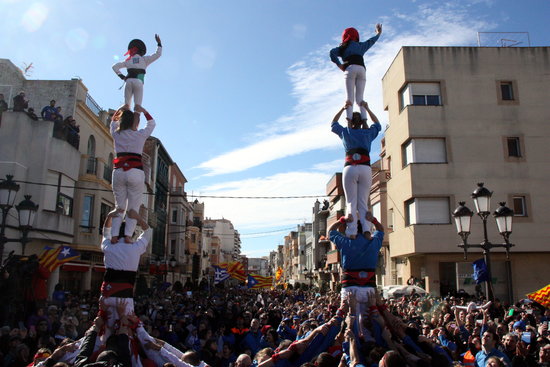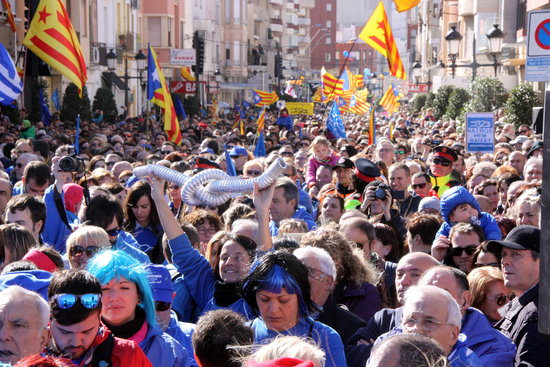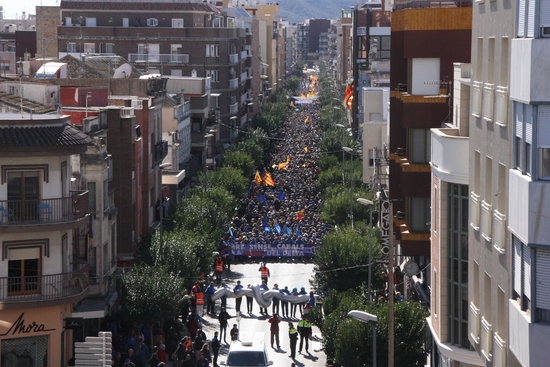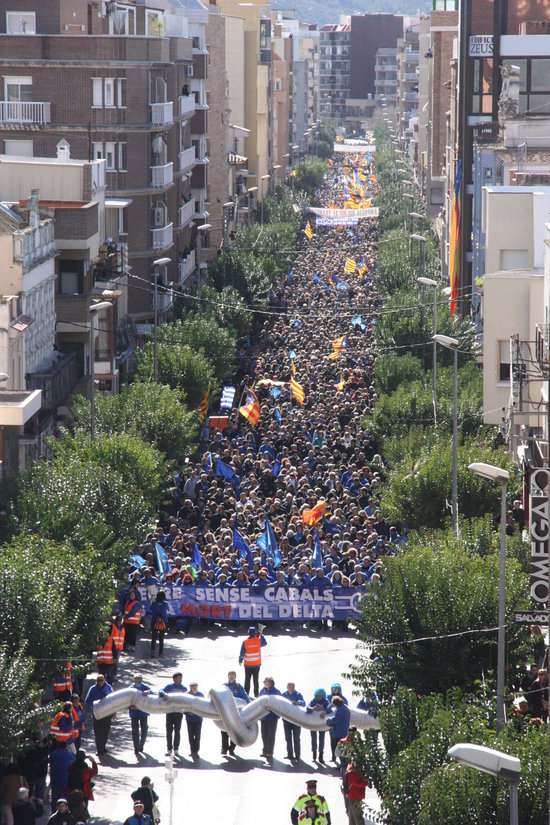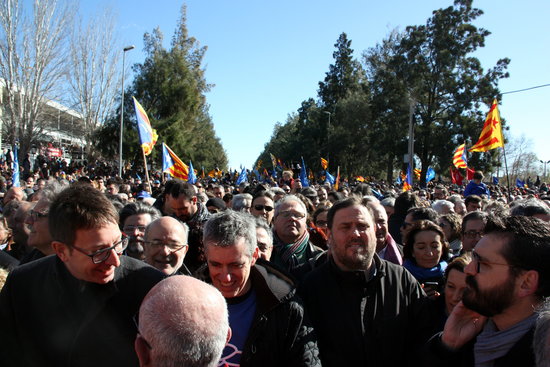Espai de dissidència
La bitàcola de Xavier Diez
La Unió Europea, en fallida moral
A vegades, estar suficientment informat de les coses que passen a fora no té la força de quan t’ho expliquen directament. Dissabte passat vaig anar a Toulouse a una d’aquestes trobades sindicals transfrontereres en què persones a banda i banda dels Pirineus, tot parafrassejant Tolstoi, viuen la infelicitat cadascú a la seva manera.
Tot i estar assabentat de moltes de les reformes que s’implementen a França, al Regne Unit, a Itàlia a còpia d’informes, documents i legislació, quan els teus col·legues t’expliquen com es tradueix a la vida real la retòrica jurídica, veus que hi ha una clara coincidència, en les formes i en els fons, en els canvis induïts als sistemes educatius. Tots, a més, en una línia similar. A Figueres, a Perpinyà, a Venècia, a Bristol, a qualsevol ciutat que ens connectava Ryanair els governs redueixen el pressupost, fan de la docència una activitat més precària i dirigida, creixen les desigualtats en totes les formes imaginables, i el diner privat comença a ocupar les oportunitats de negoci en uns serveis públics que cada vegada semblen més un Far West: una terra d’oportunitats, encara que prèviament calgui netejar d’indis el territori a conquerir. Totes les reformes s’hi assemblen perquè surten de l’OCDE, on a tall d’exemple, l’exministre Wert ha estat enviat pel govern espanyol per fer companyia a la seva nòvia. Una OCDE que vol abaixar salaris, abaixar impostos, i aconseguir que les grans fortunes puguin adquirir més iots i Ferraris, no precisament Rocher.
No només es tracta d’escoles i serveis públics. És trist constatar com elements que ens pensàvem essencials de les societats democràtiques occidentals, estan en entredit. A Madrid, s’empresonen titellaires molestos amb el franquisme adherit a les institucions. A Euskadi, polítics com Otegui o sindicalistes com Rafa Díez són a la presó com a hostatges de l’estat amb la voluntat d’impedir un procés de pau negociat. A França, amb l’espantall del gihadisme, mantenen un estat d’excepció per un període indefinit, on no es garanteix el dret de manifestació, lliure circulació o intimitat. Les directives laborals, derivades per exemple de la Bolkestein (que evidentment rima amb Frankenstein) permeten exportar la precarietat laborals dels països emissors als estats amb legislacions més respectuoses amb els treballadors. L’assetjament laboral, la pressió asfixiant, i sovint els suïcidis, són a l’ordre del dia. Els grecs han estat castigats col·lectivament com a boc expiatori dels pecats de la banca alemanya. Les contradiccions que sorgeixen entre l’esperit democràtic europeu, l’erràtica política dels refugiats, i la imminència de victòries de grups com el Front Nacional són capaços d’espantar el més optimista.
Per acabar-ho d’adobar, el mateix dissabte, mentre conduïa vers la ciutat Rosa, s’anunciava el suposat acord entre el Regne Unit i la Unió Europea en què es pidolava una actitud favorable a Cameron per a la permanència de la vella Anglaterra al que resta del somni europeu. Les condicions, draconianes, tenien a veure amb l’exclusió dels residents europeus de les prestacions socials i la carta blanca per tal que la City de Londres pogués fer i desfer, com ha fet sempre. Tot plegat sembla que el vell projecte d’un espai de cooperació i benestar, aquella Europa de Schumann, Adenauer, Spaak o Jean Monnet sembla una burla. Els neoliberals han segrestat Brussel·les. I, ara per ara, com podíem adonar-nos en una trobada d’europeus a Toulouse aquest dissabte, el continent sembla a punt d’entrar en una fallida moral.
Tot i estar assabentat de moltes de les reformes que s’implementen a França, al Regne Unit, a Itàlia a còpia d’informes, documents i legislació, quan els teus col·legues t’expliquen com es tradueix a la vida real la retòrica jurídica, veus que hi ha una clara coincidència, en les formes i en els fons, en els canvis induïts als sistemes educatius. Tots, a més, en una línia similar. A Figueres, a Perpinyà, a Venècia, a Bristol, a qualsevol ciutat que ens connectava Ryanair els governs redueixen el pressupost, fan de la docència una activitat més precària i dirigida, creixen les desigualtats en totes les formes imaginables, i el diner privat comença a ocupar les oportunitats de negoci en uns serveis públics que cada vegada semblen més un Far West: una terra d’oportunitats, encara que prèviament calgui netejar d’indis el territori a conquerir. Totes les reformes s’hi assemblen perquè surten de l’OCDE, on a tall d’exemple, l’exministre Wert ha estat enviat pel govern espanyol per fer companyia a la seva nòvia. Una OCDE que vol abaixar salaris, abaixar impostos, i aconseguir que les grans fortunes puguin adquirir més iots i Ferraris, no precisament Rocher.
No només es tracta d’escoles i serveis públics. És trist constatar com elements que ens pensàvem essencials de les societats democràtiques occidentals, estan en entredit. A Madrid, s’empresonen titellaires molestos amb el franquisme adherit a les institucions. A Euskadi, polítics com Otegui o sindicalistes com Rafa Díez són a la presó com a hostatges de l’estat amb la voluntat d’impedir un procés de pau negociat. A França, amb l’espantall del gihadisme, mantenen un estat d’excepció per un període indefinit, on no es garanteix el dret de manifestació, lliure circulació o intimitat. Les directives laborals, derivades per exemple de la Bolkestein (que evidentment rima amb Frankenstein) permeten exportar la precarietat laborals dels països emissors als estats amb legislacions més respectuoses amb els treballadors. L’assetjament laboral, la pressió asfixiant, i sovint els suïcidis, són a l’ordre del dia. Els grecs han estat castigats col·lectivament com a boc expiatori dels pecats de la banca alemanya. Les contradiccions que sorgeixen entre l’esperit democràtic europeu, l’erràtica política dels refugiats, i la imminència de victòries de grups com el Front Nacional són capaços d’espantar el més optimista.
Per acabar-ho d’adobar, el mateix dissabte, mentre conduïa vers la ciutat Rosa, s’anunciava el suposat acord entre el Regne Unit i la Unió Europea en què es pidolava una actitud favorable a Cameron per a la permanència de la vella Anglaterra al que resta del somni europeu. Les condicions, draconianes, tenien a veure amb l’exclusió dels residents europeus de les prestacions socials i la carta blanca per tal que la City de Londres pogués fer i desfer, com ha fet sempre. Tot plegat sembla que el vell projecte d’un espai de cooperació i benestar, aquella Europa de Schumann, Adenauer, Spaak o Jean Monnet sembla una burla. Els neoliberals han segrestat Brussel·les. I, ara per ara, com podíem adonar-nos en una trobada d’europeus a Toulouse aquest dissabte, el continent sembla a punt d’entrar en una fallida moral.
Nota: Càpsula setmanal del Girona Ara, Fem Ràdio



